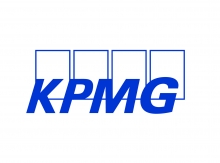Recent revelations of failures in regulatory oversight have put regulation everywhere under the microscope. Effective regulation resulting in efficient markets, however, is the result not only of the regulator's performance but also of the quality of interaction between the regulator and the market's commercial players. In heavily regulated sectors where existing or former public utilities are dominant—telecommunications, power, water, transport and post—and where policy reforms over the past two decades have created new regulatory bodies and competitors, relationships between regulator and regulated have frequently been troubled. Trust is the foundation of any good relationship; it has arguably been in shorter supply among market players in these sectors than others, and the lack of it has stifled aspects of market growth even in fast-growing economies.
This study of operator-regulator interaction in five heavily regulated sectors reveals, perhaps surprisingly, a large percentage of regulatory relationships in which the parties deem the level of trust to be high. However, the research—based on a global survey of 213 operator and regulator executives, as well as a series of one-on-one interviews with practitioners—also suggests that relationships in some sectors and parts of the world are weaker than others. It also makes clear that, even where relationships are good, trust is an extremely fragile commodity which does not take much to undermine. Mistrust often breeds uncertainty, which can have tangible negative consequences for market players.
Following are the main conclusions of the research:
- Operator-regulator relationships are evolving for the better. This is encouraging in a global context that has seen renewed calls for a more vigorous approach to regulating competitive markets. More executives in our survey characterise the level of trust between operators and regulators in their sector as high than those who think the opposite, and more participants believe that operator-regulator relationships are improving than those who see deterioration. Operators, to be sure, are less satisfied than regulators with the levels of mutual trust, and operators in developed economies are not as positive in their assessments as their counterparts in the developing world. But majorities of both operators and regulators in our survey expect improvement in their mutual relationships in the coming years.
- Breakdowns in trust often result from regulatory uncertainty, which can negatively impact industry development. Uncertainty and a resulting loss of trust carry a variety of potential consequences for market players, from direct financial losses to an increase in litigation. Operators in the survey report cite the most frequent outcomes of regulatory uncertainty to be direct increases in cost, lost revenue, cancelled or postponed investments, business initiatives put on hold or increased litigation. Taken at overall market level, the uncertainty can quickly translate into slower market development and service penetration.
- Achieving genuine trust between operator and regulator hinges on the development of a mutual understanding of each side’s objectives and constraints. With each party’s perception of the other shaped by its own experience, culture and market interests, the ability to understand the influences and motives driving the other side is a vital factor in building trust. Operators are adamant that regulators must achieve a greater appreciation of business operations and risks. Regulators, for their part, insist that operators gain an improved knowledge of regulatory and policy objectives.
- Transparency of processes and clarity of the regulatory framework increase levels of trust. The trust gap widens on issues that are susceptible to political influence and unpredictability, while routine, process-oriented interaction tends to proceed more smoothly for the parties. For example, both operators and regulators highlight licensing as a largely problem-free area of interaction, with monitoring and compliance, consumer protection, and data transfer also proceeding relatively smoothly.
- Industry consultations, a key tool in building trust, will widen the trust gap if they are more form than substance. While the survey revealed a consensus on the need for consultations on key issues, several operators voice concern with the consultation process itself, complaining that regulators treat consultations as no more than a formality. Generally speaking, operators also tend to value informal consultations over the public variety. By contrast, regulators seem more wary of such informal exchanges, which they see as contradicting the need for transparency.
- Trust suffers without strong mechanisms to share relevant and accurate information. The provision of relevant information is another important rung in the trust-building ladder, but information-sharing remains an area of friction between operators and regulators. There is a substantial gap between the regulator's need of information to fulfill its mission, and operator willingness to share information, owing to concerns around confidentiality and relevance of information. Ultimately, the parties must work together to make the information-sharing process productive.
- Processes and frameworks are important, but people and personal relationships are the critical ingredients in building trust. Asked to identify the most important contributors to an effective operator-regulator relationship, both groups of survey respondents point with equal emphasis to good personal rapport between senior executives from both parties. Strong personal relationships help to smooth potentially antagonistic relationships by offering each side some visibility into the motives and constraints of the other, and they ultimately help build trust among the parties.






